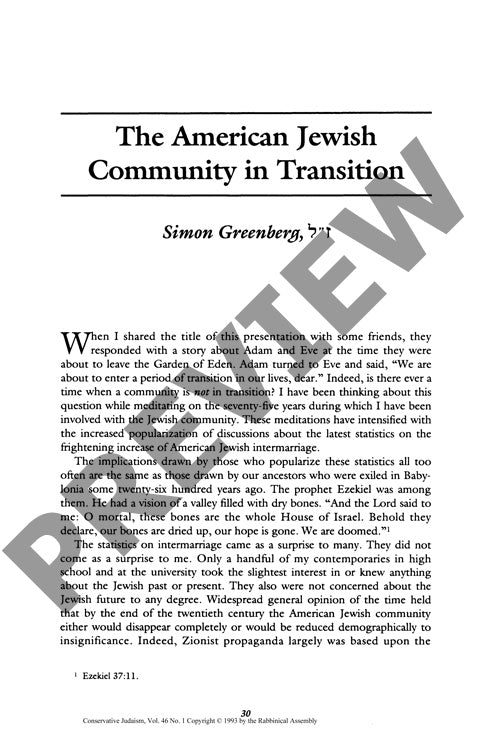The American Jewish Community in Transit
Couldn't load pickup availability
American Jewish communities have demonstrated remarkable resilience and adaptability across the twentieth century, defying predictions of cultural dissolution through intermarriage and assimilation. Drawing on personal observations spanning from 1905 to the 1990s, Rabbi Greenberg employs historical analysis and biblical exegesis to contextualize current demographic concerns within broader patterns of Jewish communal development. Through a combination of autobiographical reflection and sociological observation, the research traces Jewish migration patterns from Eastern Europe to American urban centers and the West Coast, revealing continuous geographical and cultural transitions as communities moved "from vessel to vessel" while developing new institutional frameworks. The transformation from early twentieth-century anti-religious sentiment to the establishment of substantial Jewish academic and religious infrastructure by century's end exemplifies this adaptability. Historical Jewish communities have survived through the persistence of a "saving nucleus" rather than succumbing to internal decay, as evidenced by the growth of Conservative Judaism and synagogue-centered community models. Despite significant demographic challenges, American Jewry has emerged as one of two major stable Jewish centers globally, alongside Israel, suggesting a cyclical pattern of Jewish communal renewal rather than decline.

More Information
-
Physical Description
-
Publication Information
Published 1993
ISBN
-
Publication Credits
Simon Greenberg

